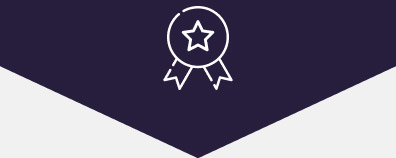What are the different types of education?
Posted on: May 24, 2022
Education is a system of learning that allows the acquisition of knowledge, skills, morals, and values for personal development. It’s interesting to think about how education began – as the transmission of cultural heritage from each generation to the next.
Education is not just about completing exams and gaining qualifications from an educational institution. It’s a gradual, some would say, life-long process that should impact students positively.
It could be argued that education comes in many forms, but there are three main kinds of education.
Formal education
Sometimes referred to as formal learning, this is what most of us think of as the school system. A formal education is when you’ve been taught by qualified and professional teachers following a particular syllabus or curriculum. The curriculums of school systems across the world differ but they maintain some similarities so that the knowledge gained is transferable.
In the USA, the K-12 program takes children from kindergarten to high school. In the UK, the national curriculum covers learning from primary education to secondary school via four key stages. Undergraduate and postgraduate studies in higher education institutions are also part of the formal education system.
Vocational education offers a different route for secondary education, as well as tertiary education, that is no less valuable or in demand. Traditionally, apprenticeship was what we now refer to as vocational education and it tends to focus on a specific trade or craft. T levels were launched in the UK in September 2020 and include industry placements. Courses such as building services engineering, healthcare science, and digital support services are already available with more options to come in September 2022 and September 2023.
Informal education
Informal education is how children (and students in adult education) learn outside the classroom. Informal education is also practised within educational institutions in extra-curricular activities like sports, crafts, acting, singing, or learning an instrument. School trips to museums or other places of interest which offer further learning, for example, a nature reserve for biology students, are considered to be examples of informal education.
Some characteristics of informal education are that it is not organised, doesn’t always involve someone who was trained to be a teacher, is often spontaneous, and doesn’t need to happen in the classroom. Many people have vivid memories of being taught something, whether by a parent or a mentor, that has stayed with them for life through this method.
Homeschooling is considered informal education. In a report called Home Education in England published by the House of Commons Library, it’s claimed that The Association of Directors of Children’s Services (ADCS) estimated that there were around 81,200 registered home-educated children in England in October 2021. The exact figure is not known because it’s not mandatory to de-register children from formal schooling. According to BBC research though, the number of registrations for home education in the UK rose by 75% in the first eight months of the school year 2021 to 2022. Homeschooling can be full-time or part-time and interest in its benefits has increased in the wake of lockdowns during the pandemic.
As in many other sectors, the pandemic highlighted the cracks in the formal education system. The apparently high numbers of families switching to homeschooling illustrates a need to review the system and evolve with the changing requirements of learners. In Wales, the curriculum is changing in the academic years starting September 2022 and September 2023. The Welsh government website states, “The national curriculum was first introduced in 1988 before on-line shopping, Google and the Cloud. Now, the world of work is different, technology is different, society is constantly changing.” Assessments will be made on a day-to-day basis rather than through exams but GCSEs and A-levels will still be part of the curriculum.
Non-formal education
Learning methods which are considered non-formal learning balance both formal and non-formal education. Examples of this include after-school activities like training or practice with sports teams, Boy Scouts or Girl Guides, adult education courses, and talks or seminars. These are meant to improve skills, keep minds eager to learn, and support all levels of learning.
Forest school is a Scandinavian pedagogical innovation that has grown in popularity in the past few years. The specialised approach is child-centred and has clear outcomes that are not curriculum-led with qualified forest school practitioners providing support and guidance. The methods allow children to develop their confidence and to be curious through hands-on learning in woodland environments. Led by learners, forest school’s ability to teach about risk assessment and problem-solving is gaining fans amongst adults too.
Richard Irvine is a forest school practitioner and early adopter of the methodology who has spent the past 25 years teaching a whole variety of groups from underprivileged primary school children to adolescents with special educational needs. He believes that the “attention restoration” that forest school provides is what makes it popular with adults as well as children who are struggling with concentration. With ADHD diagnoses rising, the range in stimuli that being outdoors offers could provide a better way of learning through direct experience.
Self-learning is a non-formal learning process and can include reading a book, following a recipe, or watching a YouTube video to figure out how to do something technical. These ways of learning through self-direction have become common with the rise in distance learning and online courses, which have always utilised a mix of media in coursework.
Education is changing, be at the forefront with a master’s
As society faces more challenges, a basic education no longer offers the skills and abilities needed to solve problems and stand out from the crowd. At the same time, the boom in online learning and self-directed learning means that there is no longer one singular form of education that offers definitive knowledge or experience.
Neurodiversity has demonstrated that the accepted “norms” of learning are not always the best way. Informal learning and methods used in special education for those with learning disabilities could be beneficial for many more who struggle with traditional ways of learning.
Human beings are naturally curious and want to learn, but how we are taught to see and understand the world around us makes all the difference. Delve into all these topics and many more with an online MA Education Leadership and Management from Keele University and help to lead the way forward.
